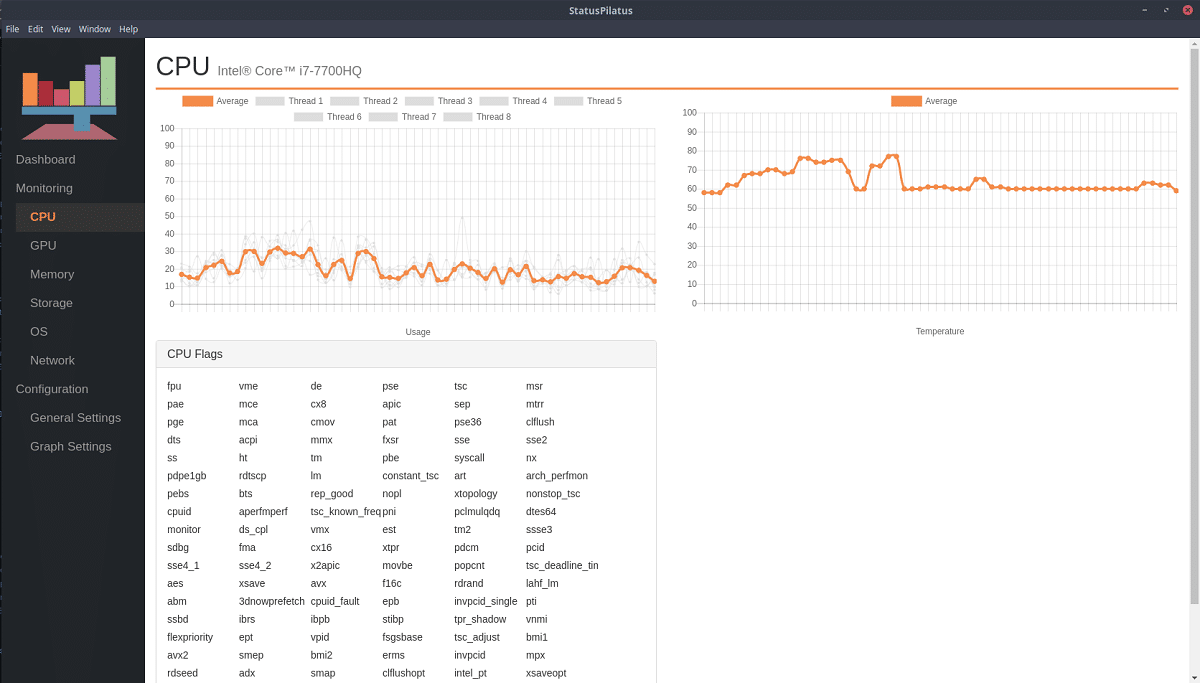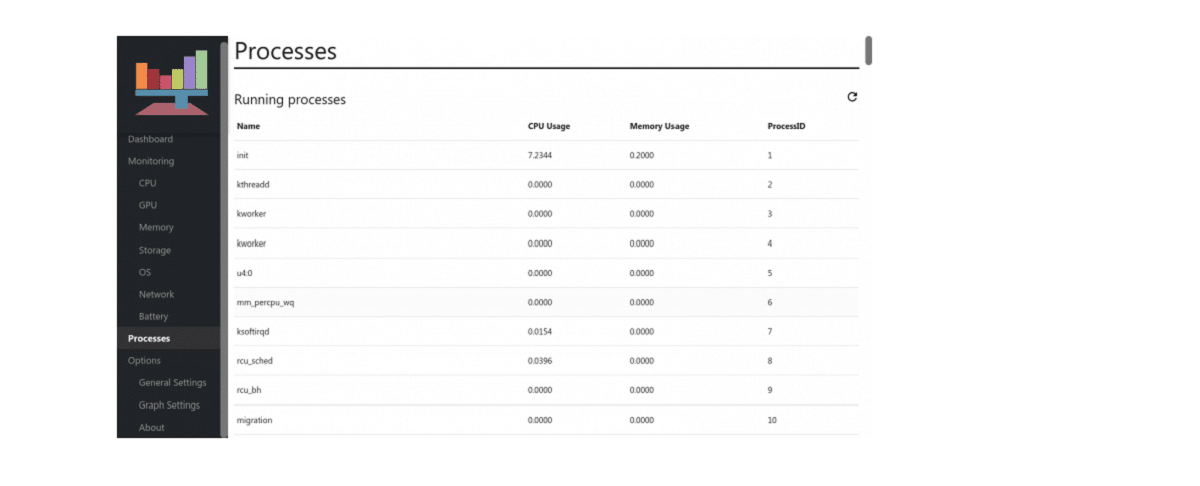
The power obtain information about the resources we have available in our system, as well as the ones in use on Linux it can be quite easy, for we can use our terminal for it. But not everyone prefers to use the terminal In addition, if they are using a graphical environment, they prefer that these stats be shown in a visually attractive way.
For this we have different options, from using Conky or any application that shows us the information and this is where StatusPilatus comes in.
StatusPilatus is a multiplatform application (can be used on Linux, MacOS and Windows) which is built with jQuery, Electron, System Information Library (Node.js) to determine and display detailed information about the system.
StatusPilatus allows you to monitor certain system information, such as CPU, GPU, RAM, disk usage, network statistics (multiple network interfaces), laptop battery information and current status (discharged, charging, full charge).
StatusPilatus displays brief information about the operating system and its main components, versions of installed applications (for some distributions) and information about running processes.
Of its main characteristics, the following stand out:
- CPU information, usage, indicators and temperature
- GPU information, with support for multiple GPUs
- RAM usage and information
- Disk usage statistics and activity
- General system information such as hostname, operating system, list of versioned programs, and more
- Network statistics with support for multiple network interfaces
- Battery information and status.

How to install StatusPilatus on Linux?
For those who are interested in being able to install this application on their system, they can do so by following the instructions we share below.
To get the StatusPilatus installation file, just direct us to download it from the link below. Here we can find the executable files for the different operating systems.
In the case of Ubuntu, Linux Mint, Debian or any other distro derived from these, we are going to download the deb package, which we can obtain from the previous link or from the terminal with the command:
wget https://github.com/PilatusDevs/StatusPilatus/releases/download/0.5.0/StatusPilatus_0.5.0_amd64.deb -O StatusPilatus.deb
Done the download we are going to install the package double-clicking on it and our package manager will take care of the installation or from the terminal with the command:
sudo apt install StatusPilatus.deb
In case of having problems with dependencies, we have to execute the command:
sudo apt -f install
Now for the case of Fedora, OpenSUSE, RHEL, CentOS or any other Linux distribution with support for RPM packages, we are going to obtain the package of this type with the command:
wget https://github.com/PilatusDevs/StatusPilatus/releases/download/0.5.0/StatusPilatus-0.5.0.x86_64.rpm -O StatusPilatus.rpm
And we proceed to perform the installation with the command:
sudo rpm -i StatusPilatus.rpm
Or with:
sudo dnf install StatusPilatus.rpm
In the case of OpenSUSE:
sudo zypper install StatusPilatus-0.5.0.x86_64.rpm
Moreover, for the rest of the distributions you can make the use of an AppImage which we can obtain with the command:
wget https://github.com/PilatusDevs/StatusPilatus/releases/download/0.5.0/StatusPilatus.0.5.0.AppImage
Done the download we are going to give execution permissions to the file. We can do this by right-clicking on the package and positioning ourselves on the permissions part of the file and here we are going to check the box "Allow to execute the file as an executable program", save it and close it.
Then we can run the AppImage file double-clicking on the package and the automatic execution of the program will begin.
O from the terminal we can carry out this process with the following command to assign permissions:
sudo chmod +x StatusPilatus.0.5.0.AppImage
And we do the execution with the command:
./StatusPilatus.0.5.0.AppImage
Finally, the source code of the application is also offered for compilation. To install by this method we must have Node.JS installed.
The code is obtained with:
git clone https://github.com/PilatusDevs/StatusPilatus.git
And we start the compilation with:
npm install npm start
Any errors that occur during the process can mean two things:
- You downloaded the latest font from an unstable branch
- Node.js, npm has configured something wrong
When the time is right, we will generate builds with one of the following commands:
npm run build npm run buildall npm run buildlinux npm run buildwin npm run buildma